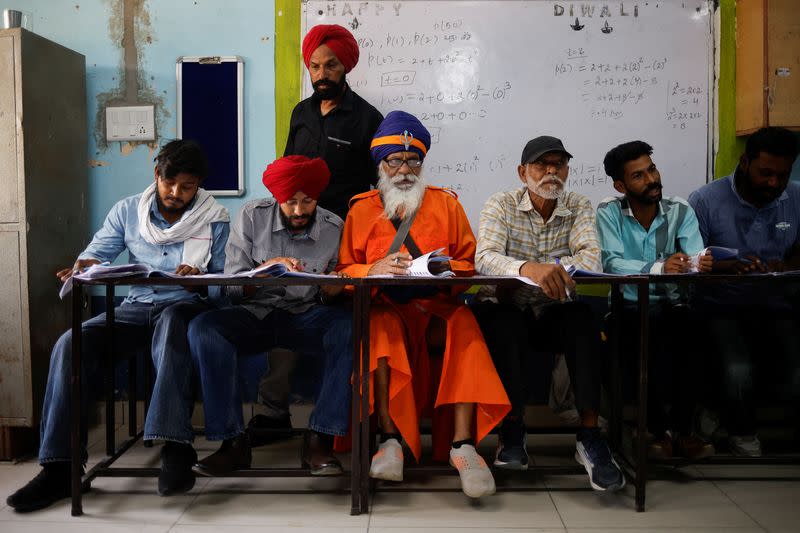Jailed Sikh separatist wins seat in India's election, family wants him freed

By Shivam Patel
NEW DELHI (Reuters) - A jailed Sikh separatist leader who stood in India's election won a seat in parliament on Tuesday with over 400,000 votes in what aides and relatives said was a sign of public anger over the "injustice" of his incarceration.
Amritpal Singh, 31, is in a high-security prison in the eastern state of Assam, nearly 3,000 km (1,900 miles) away from his constituency of Khadoor Sahib in the northwestern state of Punjab, where he ran as an independent.
Last year, Singh said he backed the creation of an independent homeland for his people in Punjab, decades after a Sikh insurgency killed tens of thousands in the 1970s and 1980s before it was stamped out.
Sikh separatism has made global headlines in the last year as Canada and the United States have accused India of being involved in assassination plots against Sikh separatists in those countries, charges New Delhi has denied.
"People have given such a huge victory in his favour to tackle the injustice he faces," Singh's lawyer Imaan Singh Khara said.
"He's got all the blessings. We will try to meet him in prison in the coming days and wish that he is also freed soon," Singh's father Tarsem, 61, said.
Sikh separatists have previously stood in Indian elections and won.
Singh was detained under a tough security law last year after he and hundreds of supporters stormed a police station with swords and firearms, demanding the release of one of his aides.
His supporters say Singh's movement only calls for adherence to religious teachings and tackling drug use among Punjabi youth. Sikhs comprise the majority community in Punjab but constitute just 2% of majority-Hindu India's 1.4 billion people.
"People who take up arms also know how to hold discussions and participate in democracy," said Karamjit Singh Sunam, a Singh campaign worker.
In 1984, Indian Prime Minister Indira Gandhi was shot dead by her two Sikh bodyguards over her decision to send the army into Sikhism's holiest shrine - the Golden Temple - to root out Sikh militants sheltering there.
The son of one of her assassins, Sarabjeet Singh Khalsa, a Sikh hardliner, also won election on Tuesday as an independent.
But analysts say that support for Singh and Khalsa should not be construed as backing for a separatist movement that now commands little popular support in Punjab.
"There is a possibility that this can turn into a violent and maybe a secessionist movement. For the time being it is not," said Pramod Kumar, chairperson of the Institute for Development and Communication.
(Reporting by Shivam Patel; editing by YP Rajesh and Mark Heinrich)


